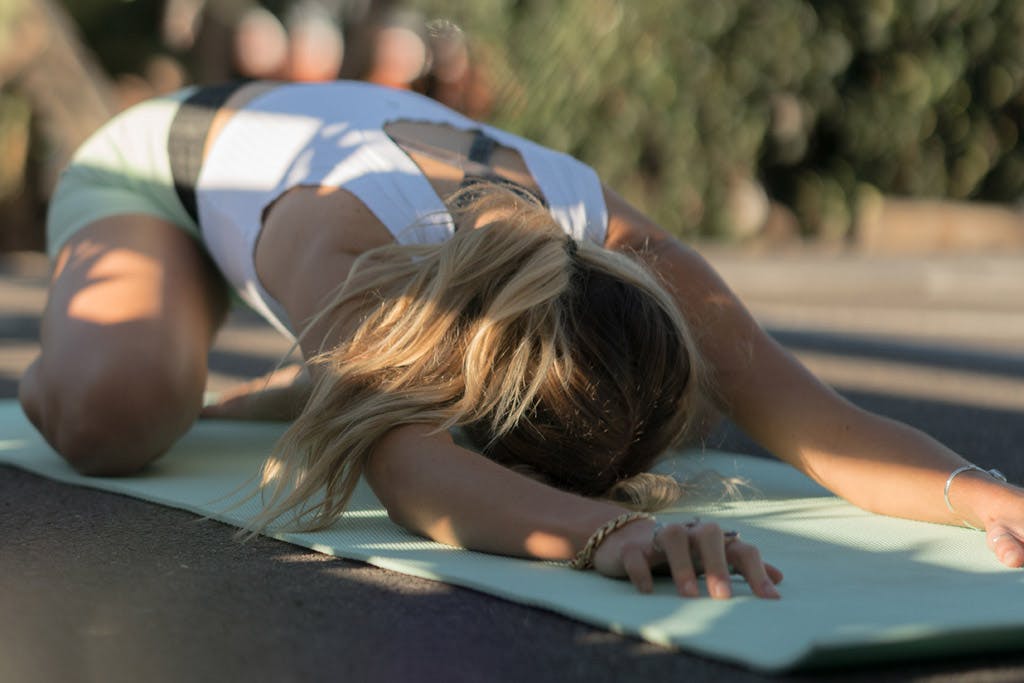
Improve Sleep Quality with Sleep Hygiene Techniques
Sean Lake
about 2 years ago
According to the CDC, one in three Americans is not getting enough quality sleep. The best night’s sleep actually starts in the day. Try as we might, we can’t try to sleep better when we are sleeping because we are, well, asleep. The best thing we can do for ourselves is set ourselves up for a good night before we go to bed.
What is sleep hygiene?
When you think of hygiene do you think of handwashing and showers? Well, hygiene can mean more than how clean we are. Sleep hygiene refers to the environment and routines we have before we go to sleep. Good sleep means having a routine and environment that promotes high-quality sleep. Just like proper hygiene is important for our immune systems, sleep hygiene promotes the health of our body by protecting our sleep. Our habits throughout the day and leading up to our bedtime have a huge impact on how well we fall and stay asleep. Here’s what you can do (and avoid) to get the best rest possible.
Leave time for winding down
As much as we love to stay on the go, we also know the importance of carving out time for rest. Jumping straight into bed after an active day may not be the best for our sleep as our bodies and brains need time to catch up and realize it’s time for bed. Leave about 45 minutes to an hour to start winding down with a calming routine.
Lean into Routine
Give yourself a bedtime routine so that you can let go of the day and be relaxed and ready for bed. A good evening routine may include:
•
Listening to calming music
•
Reading
•
Yoga or stretching
•
Meditation
•
Taking a light walk
Cozy warm beverages that are low in sugar, like tea or moon milk, can also help us calm down and sleep through the night, especially when they contain MCT Oil Powder, which can help regulate blood sugar, and collagen, which is rich in amino acids that promote sleep.
Create a cozy environment
Have you been thinking about redecorating your room or maybe investing in a nice new set of sheets? Well, this might be your reason to go for it! Our bodies and brains respond to our environments more than we realize, especially when it comes to winding down and getting ready for bed. One aspect of good sleep hygiene is creating a cozy environment that let’s our bodies know that it’s time for bed. We recommend:
•
Avoiding bright lights as dim lights help your body start producing melatonin
•
Setting your temperature to around 65 degrees Fahrenheit, which promotes REM sleep
•
Using white noise
•
Hanging room darkening curtains to keep out light
•
Invest in your bed
Did you know that on average you will spend a third of your life sleeping? This means that you will spend theoretically a third of your life in bed. Unfortunately, many of us don’t realize the importance of a good mattress until it's too late and we experience back and neck pain. But you can feel the effects of a good mattress now through better sleep.
Ditch the cell phone
We know–there’s nothing like scrolling through social media before we go to bed, but this habit might not be the best for our sleep. Aside from keeping us from actually going to bed, the light from our phones may actually hurt our sleep through the night. One study found that using your cell phone for more than eight hours in a 24 hour period and using a cell phone for 30 minutes after lights out was associated with poor sleep. You probably need more hours of sleep than you are getting. Phones are distracting and cut down on much-needed, well-deserved hours of rest. Your circadian rhythm also suffers when you stare at a screen. The circadian rhythm is our body’s natural pattern of sleep and wakefulness. Exposure to blue light from our screens trick our bodies into thinking it’s still daytime, throwing off its cues that it's time for bed.
Eat foods that promote sleep
Nutritionists and sleep experts alike agree that there are some foods that are better for promoting sleep. You should cut down on food and drink that are high in caffeine and sugar and instead incorporate foods that researchers have found to promote sleep including:
•
Kiwi
•
Tart cherry juice
•
Fatty fish
•
Milk
•
Walnuts
You should also try to eat foods that contain tryptophan, such as oats and nuts, and the amino acid glycine, which can be found in BUBS Naturals Collagen. Taking glycine 2-4 hours before bed seems to improve sleep quality in people with insomnia.
Avoid daytime naps
As much as we may want to crash for a midday nap, avoiding sleep during the day will be better for getting a good night’s rest. Taking midday naps interrupts our circadian rhythms so that we are not ready to sleep when it is actually time for bed. You’re better off finding ways to streamline your mornings and get a good, solid start.
Die Young, As Late as Possible
Sleep is associated with life expectancy and countless conditions such as obesity, heart disease, and diabetes. If you could reduce your risk for these diseases and lengthen your life expectancy just by sleeping, wouldn't you want to get the best sleep possible? Staying active, eating a healthy diet, and creating good sleep hygiene are all ways that you can get the best sleep possible.